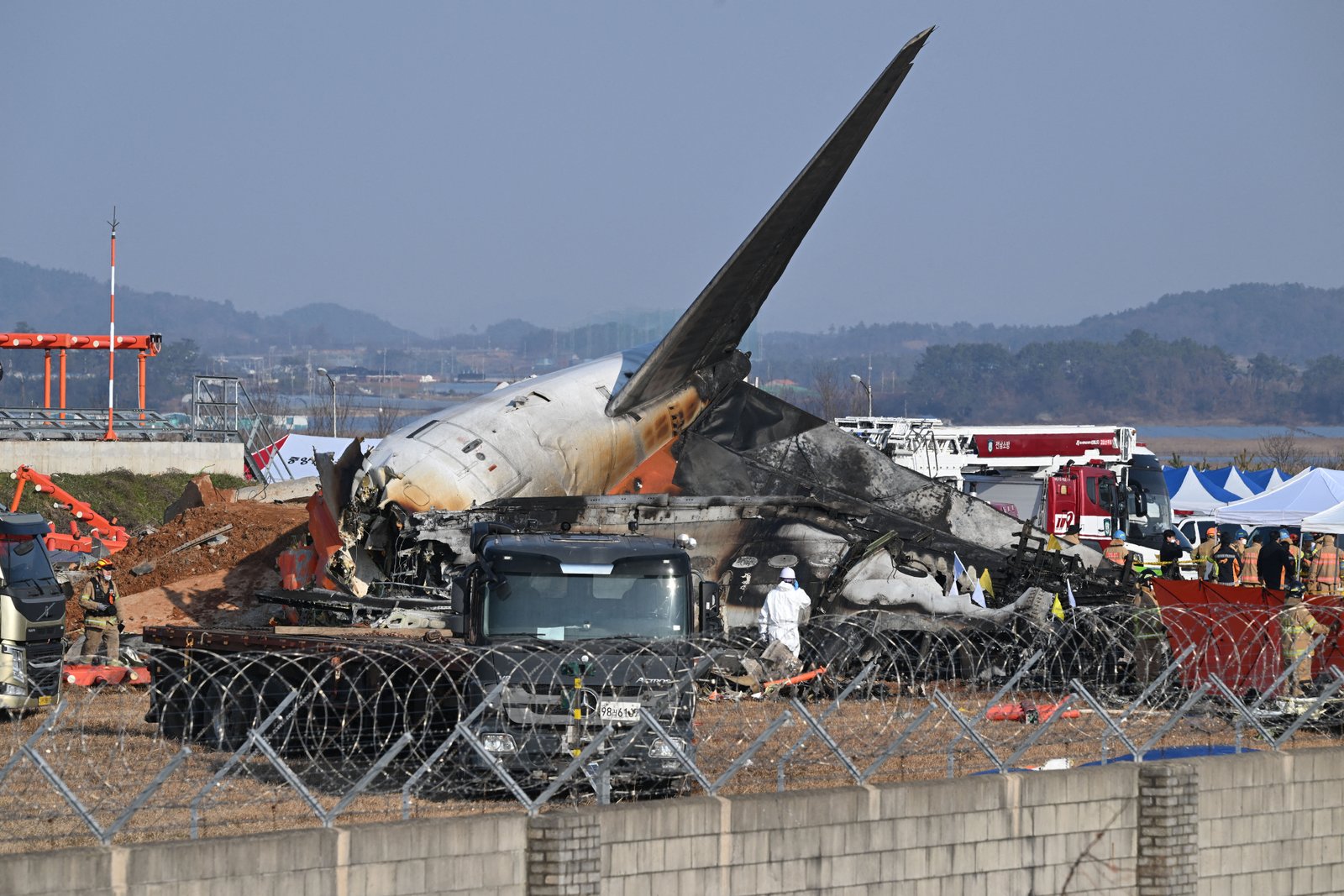The Deadliest Aviation Disaster in South Korean History: Investigation into Landing Gear Failure and Runway Obstruction
South Korea’s Ministry of Transport has announced that the black box recordings of Jeju Air's Boeing 737-800 jet ceased about four minutes before the crash. The ministry is investigating the incident, which is the deadliest aviation disaster in the country's history
The Deadliest Aviation Disaster in South Korean History: Investigation into Landing Gear Failure and Runway Obstruction
The Deadliest Aviation Disaster in South Korean History: Investigation into Landing Gear Failure and Runway Obstruction
South Korea’s Ministry of Transport has announced that the black box recordings of Jeju Air's Boeing 737-800 jet ceased about four minutes before the crash. The ministry is investigating the incident, which is the deadliest aviation disaster in the country's history.
On December 29, Jeju Air’s Flight 7C2216, traveling from Thailand to Muan International Airport in South Korea, belly-landed, struck a concrete barrier, and exploded. The accident claimed the lives of 179 out of 181 passengers and crew, marking it as the most severe aviation disaster on South Korean soil.
The Ministry of Transport stated, "The analysis revealed that both the Cockpit Voice Recorder (CVR) and Flight Data Recorder (FDR) did not record any data during the final four minutes of the flight."
A barrier at the runway’s end, part of the localizer system, is believed to have exacerbated the crash's severity.
The cockpit voice recorder was initially analyzed in South Korea. Upon discovering missing data, it was sent to the United States National Transportation Safety Board laboratory. However, the loss of data from the crucial final moments leaves authorities striving to determine the cause of the crash.
"The ongoing investigation will include plans to examine the reasons for the data loss," the Ministry said.
Sim Jai-dong, a former accident investigator for the Ministry of Transport, told Reuters, "The missing data is surprising and suggests that all power, including backup power, may have been cut, which is a rare occurrence."
Investigators have pointed to a bird strike, faulty landing gear, and the runway barrier as potential factors.
The pilot had warned of a bird strike before aborting an initial landing and attempting a go-around. However, instead of completing a full turnaround, the Boeing 737-800 jet made a sharp turn and approached the airport's single runway from the opposite direction, crash-landing without deploying the landing gear.
Lead investigator Lee Seung-yeol told reporters this week, "Feathers were found in one of the plane’s recovered engines," but cautioned that a bird strike does not immediately cause engine failure.
Authorities have raided offices at Muan Airport, a regional aviation office in the southwest, and Jeju Air's office in Seoul. They have also imposed a travel ban on Jeju Air’s CEO. Amid the ongoing investigation, Transport Minister Park Sang-woo offered his resignation, stating, "I feel a heavy sense of responsibility regarding this tragedy."










